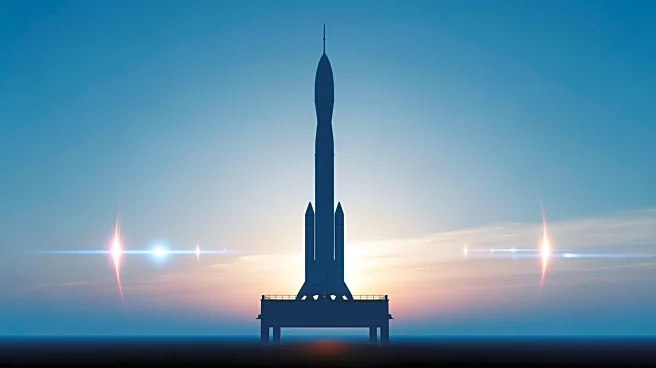What's Happening?
Blue Origin successfully launched its New Glenn rocket from Cape Canaveral Space Force Station, carrying NASA's twin Mars orbiters on November 13, 2025. The launch was delayed by four days due to local weather and solar storms. The mission aims to study
Mars' upper atmosphere and magnetic fields, with the orbiters expected to arrive at Mars in 2027. A notable achievement was the successful recovery of the New Glenn booster, which landed upright on a barge offshore, marking a significant step in Blue Origin's efforts to develop reusable rockets.
Why It's Important?
The successful launch and booster recovery demonstrate Blue Origin's progress in developing reusable rocket technology, which is essential for reducing costs and increasing the frequency of space missions. This achievement positions Blue Origin as a strong competitor to SpaceX, potentially influencing the future landscape of commercial space exploration. The ESCAPADE mission's focus on Mars' atmosphere and magnetic fields could provide valuable data for future astronaut missions, aiding NASA's long-term goals for human exploration of Mars.
What's Next?
The ESCAPADE satellites will orbit near Earth for the next year before heading to Mars in 2026, with an expected arrival in 2027. Blue Origin plans to continue its space exploration efforts, with potential lunar missions in 2026, including the Blue Moon Pathfinder lander. These missions will further demonstrate New Glenn's capabilities and contribute to NASA's Artemis program, aiming for future moon landings.
Beyond the Headlines
The successful booster recovery highlights the potential for cost savings and increased mission frequency through reusable rocket technology. This development could lead to more frequent and affordable space missions, accelerating advancements in space exploration and technology.
















